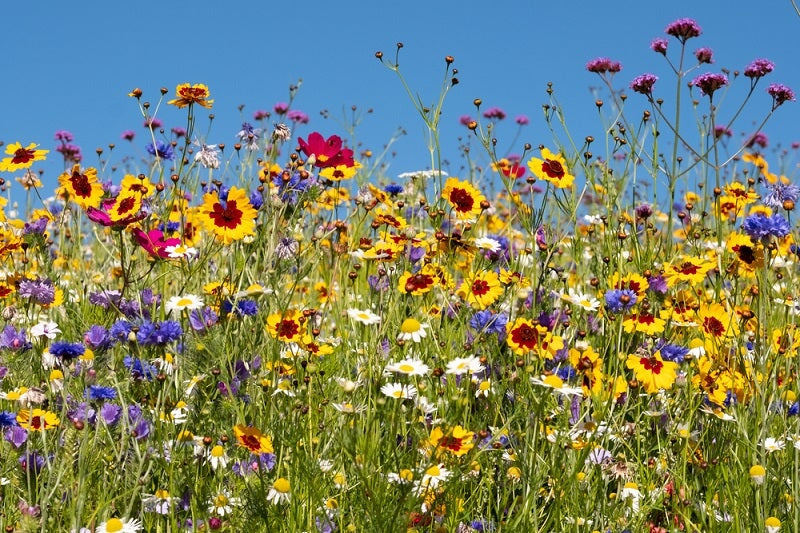
TLDR
In the vastness of our planet lies an incredible wealth of biodiversity, or biological diversity. It represents the remarkable variety of life found on Earth — it is the myriad of different species of plants, animals, fungi, and microorganisms that inhabit our world (1). But it's not just about the number of species; it's also about the genetic diversity within each species and the diversity of ecosystems that these species inhabit. Imagine the genetic differences within the human species, the unique characteristics of an individual tiger or the differentiating features of a particular orchid. Consider the sweeping variety of ecosystems — the lush forests, arid deserts, colorful coral reefs, freshwater rivers, towering mountains, and the mysterious deep sea — each with its unique community of life.
Why Biodiversity Matters for Healthy Ecosystems
The ecological significance of biodiversity is profound. Every living organism, no matter how small or seemingly insignificant, plays a role in the health and functioning of its ecosystem (2). The benefits of biodiversity to ecosystems, and by extension, to us humans, are manifold.
Biodiversity as the Backbone of Our Provisions
We often think of the direct benefits we gain from biodiversity in terms of our provisions. This includes the food we eat, the wood we use for furniture and construction, the fibers we use for clothing, the medicinal plants that form the basis for many of our drugs, and many other resources. The variety of plant species alone provides us with an array of fruits, vegetables, nuts, and grains, each with its unique nutritional benefits. Animals contribute to the variety in our diet with different types of meat, dairy, eggs, and more. Even fungi and bacteria have their roles in producing certain types of food and drink, like bread, cheese, and beer.

Nature's Control Systems
Besides these direct benefits, biodiversity also regulates the ecosystem. Forests, for example, play an essential role in regulating our climate by absorbing carbon dioxide and releasing oxygen. Wetlands act as natural water filters, cleaning the water that flows through them and preventing harmful substances from reaching our water bodies. Insect pollinators, like bees and butterflies, ensure the fertilization of flowers, a crucial process for fruit and seed production in many of our food crops and other plants. Without these regulating services, our planet — and life as we know it — would look very different.
Biodiversity Powers Life's Essential Processes
Then there are the other benefits, the fundamental ecological processes that occur mostly behind the scenes but are essential for life on Earth. The nutrient cycling that keeps our soils fertile, the photosynthesis that produces the oxygen we breathe, and the decomposition of organic matter back into nutrients are all driven by biodiversity. Even the formation of soil itself, which is a slow and complex process involving numerous organisms, is a supporting service provided by biodiversity.
Cultural Benefits
Last, but certainly, not least, biodiversity provides us with cultural benefits. These are the benefits we derive from the natural world that enrich our cultural, spiritual, intellectual, and physical well-being. The peaceful feeling that washes over you when you walk in a forest, the sense of awe when you gaze upon a beautiful landscape, the inspiration you draw from the intricacies and wonders of nature — these are all intangible benefits that contribute to our mental and emotional well-being.

The Magic of Biodiversity: Nature's Recipe for Success
The sheer scale and variety of biodiversity on Earth are nothing short of magical. In each ecosystem, from the densest jungle to the barren Arctic tundra, every species, every organism, has a role to play. Each has carved out its own niche, and together, they form a dynamic and harmonious community. This intricate web of life, with its countless interactions and relationships, creates a natural balance and resilience in ecosystems.
How Biodiversity Makes Ecosystems Stronger and More Resilient
It's often said that variety is the spice of life, but in the case of biodiversity, variety is the very lifeblood of our planet. An ecosystem with a high level of biodiversity is stronger, more robust, and more resilient to changes and disturbances.
The variety of species in an ecosystem increases its ability to withstand environmental stressors and recover from disturbances. For example, in a diverse forest, if one species of tree is wiped out by disease, other species can fill in the gap, maintaining the forest's overall health and function. The variety of life forms in an ecosystem also increases its adaptability to changing conditions. As the climate changes, for example, some species may be better suited to the new conditions and can help maintain the ecosystem's functions.
Biodiversity's Impact on Our World
Food Security
Biodiversity underpins our food security (3). The genetic diversity within our crop and livestock species allows for the development of new varieties and breeds that are resistant to pests, diseases, and changing climatic conditions. This diversity also ensures a varied diet, supplying us with a range of nutrients necessary for our health.
Climate Change
Biodiversity plays a critical role in both mitigating climate change and adapting to its impacts (4). Healthy ecosystems, such as forests, grasslands, and wetlands, act as carbon sinks, absorbing carbon dioxide from the atmosphere and storing it in their plants and soils. At the same time, biodiversity increases the resilience of these ecosystems, enabling them to adapt to changing climatic conditions and continue providing their essential services.

Human Health
Biodiversity has direct and indirect impacts on our health (5). Many of the medicines we use today have been derived from natural compounds found in plants, fungi, and other organisms. Biodiversity also underpins the functioning of ecosystems that provide us with clean air and water, both essential for our health. At the same time, the loss of biodiversity can increase the risk of disease transmission, as changes in ecosystems can favor certain disease vectors or pathogens.
The Current State of Biodiversity: Threats and Challenges
Despite the critical importance of biodiversity, it is under threat globally. Habitat destruction, overharvesting, invasive species, pollution, and climate change are driving species to extinction at an alarming rate (6). This loss of biodiversity poses a significant risk to the health and resilience of ecosystems and threatens the essential services they provide.
Protecting and Restoring Biodiversity
The field of conservation biology is dedicated to protecting and restoring biodiversity. This involves a range of strategies, from setting up protected areas to safeguarding critical habitats, to reintroducing threatened species to their native ranges, to promoting sustainable use of natural resources. On an individual level, we can all contribute to these efforts through our everyday actions, from planting native species in our gardens, to reducing our carbon footprint (explore our guide on How to Become Carbon Neutral), to supporting businesses that prioritize sustainability.
The Need for Biodiversity Conservation to Keep Things Balanced
Biodiversity is much more than just a collection of different species. It's the intricate web of life that underpins the functioning and resilience of our ecosystems. The balance of life on Earth hinges on biodiversity, and each organism, no matter how small, plays a role in maintaining this balance.
The conservation of biodiversity is, therefore, not just about protecting individual species; it's about preserving the resilience and balance of our ecosystems, upon which we all depend. As we navigate the challenges of the 21st century, from climate change to food security to public health, the importance of maintaining our planet's biodiversity has never been more critical. Each thread of the intricate web of life matters, and the loss of even one can disrupt the balance and weaken the whole. It's time we take urgent action to conserve and restore our planet's biodiversity — for the sake of all life on Earth, including our own.

Biodiversity & Reel Paper
Not sure how to encourage biodiversity in your daily life? Making the choice to follow biodiversity-friendly practices starts with small lifestyle changes. Using sustainable products that minimize the strain on our natural resources also plays a vital role in preserving biodiversity. For instance, choosing to use Reel's bamboo toilet paper and recycled paper towels over traditionally manufactured products helps in conserving our forests, a biodiversity hotspot. This not only reduces your carbon footprint but also supports the health of various species dependent on these ecosystems. So, take the first step towards a more biodiversity-friendly lifestyle today, and switch to Reel's bamboo toilet paper and recycled paper towels.
Sources:
- https://www.nationalgeographic.org/encyclopedia/biodiversity/
- https://nhpbs.org/natureworks/nwepecosystems.htm
- https://www.fao.org/news/story/en/item/1180463/icode/
- https://www.un.org/en/climatechange/science/climate-issues/biodiversity
- https://www.neefusa.org/story/health-and-environment/why-biodiversity-important-human- health
- https://www.amnh.org/explore/ology/biodiversity/going-going-gone/what-causes-extinction



0 comments